MIT SCHOOL OF HUMANITIES, ARTS, AND SOCIAL SCIENCES
Media + Awards Digest | September 2020

The Media + Awards Digest is a section of the Said and Done newsletter. Subscribe
Office of the Dean | 17 September 2020
Dear Friends,
My warmest greetings as we begin the new academic year. As with the Spring term, Commencement, and other milestones large and small, the coming term will be unprecedented due to the ongoing pandemic and its uncertainties. And, of course, our endemic struggles as a nation and planet also persist.
Against this backdrop, the ability of MIT’s faculty to continue extraordinary research and teaching — and to further share research and insights with the wider world — is remarkable. This edition of the Media Digest contains selected highlights of those media contributions by the MIT-SHASS faculty and community.
The Covid-19 battle and Election 2020 continue to produce top headlines. Work by economists Daron Acemoglu and David Autor was featured in a Wall Street Journal column discussing inequalities accelerated by the pandemic. Election expert Charles Stewart III writes about voting by mail risks in The Washington Post, while also conducting interviews with ABC News, Reuters, and The New York Times.
Teaching Labs director and CMS/W researcher Justin Reich lent commentary for an WBUR News article on conducting virtual learning from an actual classroom, noting the state’s teachers are “re-devising their whole curriculum” for Covid-19 challenges. On NPR’s Morning Edition, Claire Conceison, Professor of Theater Arts, gave an illuminating talk about the first Chinese-language production of "A Raisin in the Sun," staged in Beijing.
The acclaimed alumni of our Graduate Program in Science Writing continue their ongoing contributions to the public engagement with science: Josh Sokol ’15 writes in The Atlantic of a mosquito that spreads disease at a rate rivaling Covid-19; and in her most recent book, The Great Indoors, Emily Anthes ’06 explores "indoor ecology" including our relationship with the hundreds of microbes inside our homes.
In Technology Review, recent MIT-SHASS alums, and twins, Allan and Danny Gelfman ’20, outline their lifelong creative collaborations. At MIT, the Gelfman brothers were excited to discover 21E, which they rightly describe as “a very flexible program that lets you combine any humanities field with any engineering field."
I found this month’s media entries by turns informative, illuminating, thought-provoking, and uplifting, and hope you will too. With sustained gratitude, and very best wishes for a safe and successful Fall,
Melissa
Melissa Nobles
Kenan Sahin Dean
Professor of Political Science
MIT School of Humanities, Arts, and Social Sciences
HONORS AND AWARDS
MIT SHASS
Infinite Mile Awards 2020
Dean Nobles has announced six winners of the 2020 MIT SHASS Infinite Mile Awards, which salute members of the MIT-SHASS staff who have made exceptional contributions to their academic units, the School, and the Institute. Warmest congratulations to: Brittany Bradley, JPAL; Alicia Goldstein Raun, MISTI; Fatih Basaga, Center for International Studies; Miguel Flores, Music and Theater Arts; Zina Queen, Political Science; and Belinda Yung, Literature.
Meet the 2020 Infinite Mile recipients
OFFICE OF DIGITAL LEARNING
MIT Teaching with Digital Technology Awards | 2020
The 2020 winners include six faculty from MIT SHASS: Malick Ghachem, History; Mara Gubar, Literature; Stefan Helmreich, Anthropology; Graham Jones, Anthropology; Maria Khotimsky, Global Languages; and Isadora Nicholas, Global Languages. The 2020 winners were honored in a July 30th Zoom celebration, and their teaching stories are highlighted in the following video.
Story at Open Learning
ECONOMICS
David Autor awarded grant from Washington Center for Equitable Growth
Autor was one of this year's grant recipients; he and his co-awardees (Anna Salomons, Utrecht University, and Bryan Seegmiller, MIT Sloan) will chart the evolution of new work in the U.S. over 12 decades and test a set of economic hypotheses about where and when new work arises.
Announcement | Project description
LINGUISTICS
Barbara Partee PhD ’65 receives Franklin Medal in Computer and Cognitive Science
Partee, the first alumna of MIT's Graduate Program in Linguistics is a pioneer in linguistics, and the founder of the field of formal semantics, which applies the tools of logic and linguistics to the study of how the meanings of sentences are composed. She was recently honored with the 2020 Benjamin Franklin Medal in Computer and Cognitive Science for “foundational contributions that synthesize insights from linguistics, philosophy, logic, and psychology to understand how words and sentences combine to express meaning in human language.”
Story at Slice of MIT
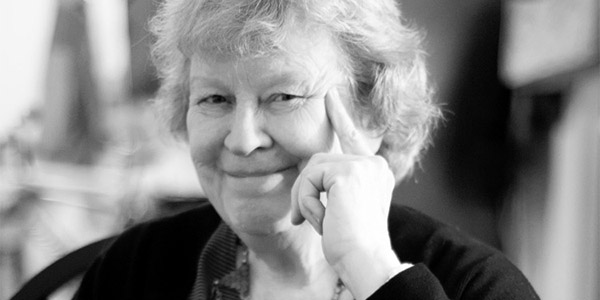
Barbara Partee PhD '65, Distinguished University Professor emerita of Linguistics, University of Massachusetts, Amherst; photo courtesy of the professor
MEDIA DIGEST
2020 ELECTION
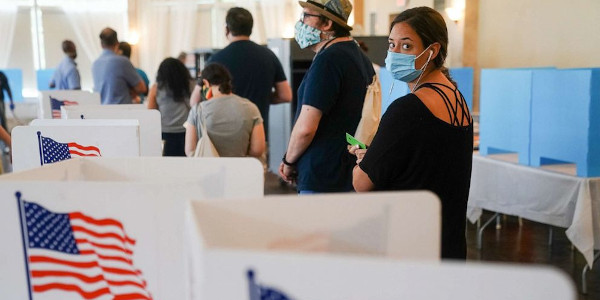
People wait in line to vote in Georgia's primary election; Elijah Nouvelage/Getty Images
ABC NEWS
Early in-person voting a strong option for concerned voters | Charles Stewart III
Stewart, a professor of political science at The Massachusetts Institute of Technology, has been studying voting patterns over the last two decades and told ABC News some early voting poll sites and drop-off centers provide voters with better site resources than others.
Story at ABC News
FORTUNE
The Republican Party turns its platform into a person | Elizabeth Wood
Vladimir Putin's United Russia Party followed such a path in 2007, when it began referring to its party manifesto as the “Putin Plan.” As Elizabeth Wood, professor of Russian and Soviet history at MIT, has written, the party referred to it “as if such a plan really existed and as if it contained genuine content.” In reality, she says, it was whatever Putin said it was.
Story at Fortune
THE WASHINGTON POST
The 2020 conventions are what the parties have dreamed of | Heather Hendershot
Hendershot writes that the media images of law enforcement beating and gassing American protesters in recent months inevitably evoked iconic footage of 1960s protests, especially those that took place during the 1968 Democratic National Convention in Chicago. Being online will give parties more control of how television viewers experience their conventions.
Commentary at The Washington Post
THE BOSTON GLOBE
Voting during a pandemic
"Protecting the right to vote depends on investments in US voting infrastructure and personnel. Voting by mail is a critical option but is not by itself a panacea, especially in states that are adopting this policy for the first time. In-person voting will still need to occur, as it does in each of the states that already have universal mail-in balloting: Oregon, Utah, Hawaii, Colorado, and Washington. In-person voting relies on a vast and underappreciated army of people who make voting happen: poll workers."
Story at The Boston Globe
BOSTON GLOBE
Should voters rank their preferences instead? | Jesse Clark
“Without some voter outreach and investing both time and money ... you won't have a system that improves much on what we already have,” said Clark, a PhD candidate at MIT who's closely studied ranked-choice voting.
Story at The Boston Globe
THE NEW YORK TIMES
Racial liberalism and racial conservatism | Devin Caughey, James Dunham
Caughy and Dunham describe what they call the ideological nationalization of politics. "They found that in the 1950s, the economic conservatism of voters and elected officials was 'unrelated to their racial and social conservatism.' Among Senators, these 'three domains had become roughly equally correlated by 1970' and, moving more slowly, 'by the 2000s, mass conservatism was just as highly correlated.' In other words, conservatism and liberalism both became one dimensional — consistent across economics, race and sociocultural issues."
Story at The New York Times
REUTERS
USPS chaos prompts Democrats to reassess mail-ballot plan | Charles Stewart III
Mail ballots accounted for 80% of all votes cast in 16 state primaries this year, including Wisconsin, Nevada and Pennsylvania, according to an estimate by Charles Stewart III, a professor at the Massachusetts Institute of Technology.
Story at Reuters
THE WASHINGTON POST
How likely is it that your mail-in ballot won't get counted? | Charles Stewart III
Stewart writes, "the greatest risks of voting by mail are voters' own mistakes. To minimize this problem, election officials can warn voters that a mistake on their absentee ballot means it won't be counted — or they can design ballots and instructions using plain language."
Commentary at The Washington Post
SECURITY STUDIES

DF-41 intercontinental strategic nuclear missiles in a military parade; photo via Liu Bin/Getty Images
THE NEW YORK TIMES
China fires missiles into South China Sea, sending U.S. a message | M. Taylor Fravel
“The growing frequency of exercises and the new types of capabilities displayed demonstrate the progress China has achieved in its military modernization drive over the past two decades,” said M. Taylor Fravel
Story at The New York Times
VOX
China may double its nuclear arsenal in just 10 years | Vipin Narang
“A doubling is not as scary as it sounds,” said Vipin Narang. In a way, the new buildup is China's admission that it's acted too late to close the yawning nuclear gap. “China doubling over the next couple decades is kind of ‘it's about time,'” said MIT's Narang. “China is late to the game.”
Story at Vox
THE FINANCIAL TIMES
India and China meet to defuse Himalayan border tensions | Vipin Narang
Narang said the two countries had to move to disengage militarily to avoid an inadvertent escalation. “I don't think that either side really wants to risk a war over these positions along the line of actual control but we now have a lot of friction points,” he said.
Story at The Financial Times
SCIENCE WRITING
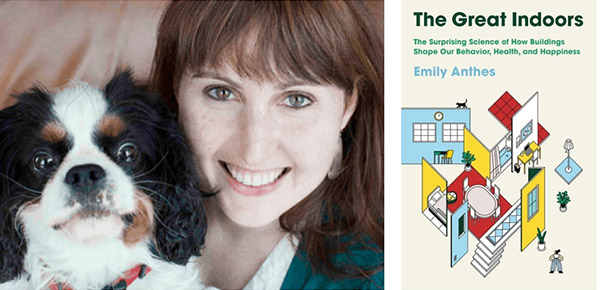
Emily Anthes SM '06 (and an associate) with the cover image of her most recent book
UNDARK MAGAZINE
Indoor Ecology | Emily Anthes, SM '06
The book begins with an exploration of the burgeoning field of indoor ecology. Anthes explains that our homes are host to an "invisible menagerie of organisms" whose lives are intertwined with ours.
Review at Undark Magazine
THE ATLANTIC
The worst animal in the world | Josh Sokol '15
Every year, as many as 400 million people are infected with life-threatening diseases by the Aedes aegypti mosquito. It wasn’t always so dangerous.
Story at The Atlantic
BOOK REVIEW IN THE NEW YORK TIMES
The '60s data scientists who anticipated Facebook, Google | Seth Mnookin
Mnookin reviews If Then, a new book by Jill Lepore: “'Simulmatics failed,' Lepore writes in her epilogue, “but not before its scientists built a very early version of the machine in which humanity would in the early 21st century find itself trapped. ...That Lepore overstates Simulmatics’ role in this tale does not make her ultimate conclusions any less true."
Review at the New York Times
ECONOMICS
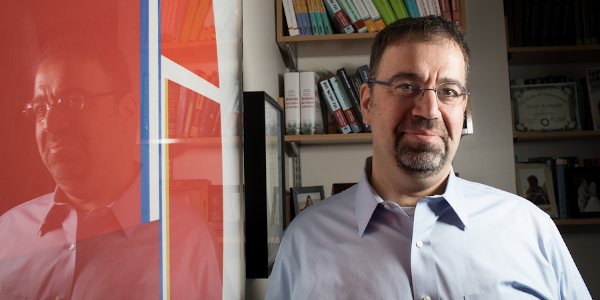
Economist and Institute Professor Daron Acemoglu; photo by Jared Charney
NATIONAL GEOGRAPHIC
The robot revolution has arrived | Daron Acemoglu
“The evidence is fairly clear that we have many, many fewer blue-collar production jobs, assembly jobs, in industries that are adopting robots,” said Acemoglu, an economist at MIT who has studied the effects of robots and other automation. “That doesn't mean that future technology cannot create jobs."
Story at National Geographic
THE ATLANTIC
Investors have been making the same mistake for 300 years | Tom Levenson
Starting in 1721, a new British parliamentary leadership moved to impose some measures to prevent a recurrence of the previous year's disaster. That's been a common response to subsequent financial disasters, including the Great Recession.
Story at The Atlantic
THE ATLANTIC
All that performative environmentalism adds up | Daron Acemoglu
Generally, research indicates that laws and regulations often work better when they reflect what a populace is already doing or how it is already changing, rather than trying to force a populace to change. The economists Daron Acemoglu of MIT and Matthew Jackson of Stanford tackled the phenomenon in a paper.
Story at The Atlantic
CAMPUS VOICES
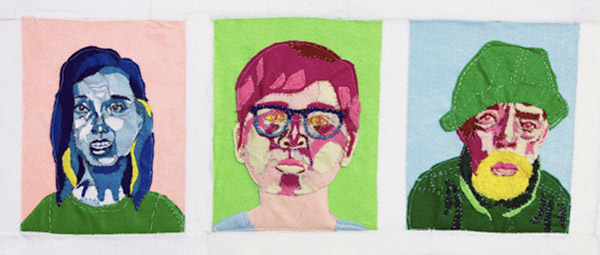
A portion of the Gelmans' “Stitched Together” felt portraits; photo via The Technology Review
THE TECHNOLOGY REVIEW
Crafting our path | Allan and Danny Gelman
In Technology Review, twins Allan and Danny Gelman make a great case for signing up for the 21E major — Humanities and Engineering — which enabled them to study in Comparative Media Studies, the MIT Game Lab, and EECS.
Commentary at The Technology Review
THE TECH
MIT Center for Civic Media closes after 13 years
MIT's Center for Civic Media closed down at the end of August, as announced in a letter by the center's director, Ethan Zuckerman. The Center was a collaboration between the MIT Media Lab and the Comparative Media Studies/Writing (CMS/W) department and contributed to research in media, technology, and civic and political engagement for 13 years.
Story at The Tech
IMAGINING WHAT'S NEXT
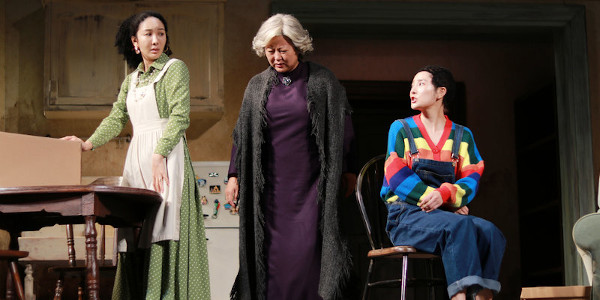
From left: Xu Jingyao, Wang Qianhua, and Xu Cenzi in A Raisin in the Sun; photo by Amy Cheng/NPR
NPR
First Chinese production of A Raisin In The Sun staged in Beijing | Claire Conceison
"The aesthetic practice itself is slightly different because the goal for this realistic makeup in China is to as closely simulate verisimilitude and as an authentic kind of representation of a foreigner as possible, even though this is not possible," says Conceison.
Story at NPR
NBC
The Fortnite lawsuit shows the tech monopoly getting too much love | Rizwan Virk
The MIT Play Labs founder writes, "Apple, like the big monopolies of the past, now seems to think innovation means putting out a new color or different product size while optimizing efficiency and profitability. Apple's clash with Fortnite may not just take off Apple's halo, it may also earn Apple a new nickname in the years to come: Big Brother."
Commentary at NBC
NBC
Computer chips that can read our brains move from sci-fi to reality | Rizwan Virk
Virk writes, "While the science to connect our brains to computers is slowly becoming a reality and the near-term applications will mostly benefit society, the dangers of dystopian applications are becoming more real, too. As a result, we urgently need to start grappling with the legal, ethical and moral issues."
Commentary at NBC
PANDEMIC-RELATED MEDA PUBLICATIONS
At-A-Glance List of Pandemic-related Media Publications from MIT SHASS
An ongoing list of commentaries from our School community to inform policy and to increase public understanding of the pandemic.
Collected Publications
HEALTH AND HEALTHCARE
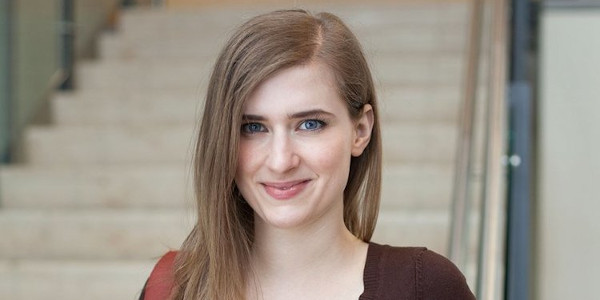
Nina McMurry, candidate in MIT Political Science; photo by Ben Bocko
FORTUNE
Americans don’t trust contact tracing apps. Here’s how we can fix that | Nina McMurry
McMurry, an MIT political science graduate student, writes: "We find that the public is more willing to use apps, like those supported by the Google-Apple API, that store user data on phones rather than on a central server."
Story at Fortune
EDUCATION
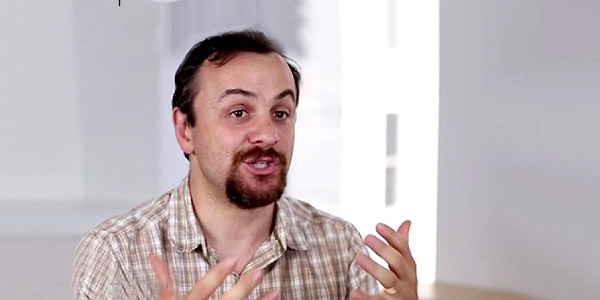
Justin Reich; image via MIT Open Learning
WBUR
Is virtual learning best from an actual classroom? | Justin Reich
“Almost every teacher I've spoken with has talked about how much more work they're doing during this period — they're re-devising their whole curriculum,” said Reich, the MIT Teaching System Lab's director. Reich granted that of course there are different levels of ingenuity and commitment among teachers.
Commentary at WBUR
THE NEW YORK TIMES MAGAZINE
Will this be a lost year for America's children? | Justin Reich
“Once schools shuttered in the early days of the pandemic, educators quickly discovered the possibilities and limits of distance-learning technologies,” notes Reich. “Months later, it is obvious that the bright points of learning tech are substantially offset by the loss of schools as places for camaraderie, shelter, nutrition, social services, teaching and learning."
Story at The New York Times Magazine
ECONOMICS
THE WALL STREET JOURNAL
Covid-19 is dividing the American worker | Daron Acemoglu
Even before the pandemic, “Automation can explain labor share decline, stagnant median wages and declining real wages at the bottom,” says Acemoglu. “It's the bottom that's really getting hammered.” To understand why these workers are so vulnerable, it helps to step back in time. In a string of papers, Acemoglu and colleagues unpacked decades of data on productivity and employment.
Story at The Wall Street Journal
VOX
How a basic income experiment helped Kenyans weather Covid-19 | Abhijit Banerjee
How does receiving a UBI (or having received a UBI up until recently) affect how communities are hit by a serious economic setback like this one? The researchers decided to check back in on the households in their UBI trial.
Story at Vox
BLOOMBERG NEWS
The rich stay home while the poor get poorer | David Autor
Autor suggests a number of solutions: Making permanent the extension of unemployment insurance to independent contractors and others who previously didn't qualify; investing to upskill those whose jobs were made redundant; building public infrastructure.
Story at Bloomberg News
The Media + Awards Digest is a section
of Said and Done, the School's online digest.
EXPLORE
Follow us




Subscribe to Said and Done
10 issues a year
Making a Better World
Basic Research | Citizenship | Computing and AI | Education
Health of the Planet | Human Health | The Human Factor
Arts Innovation | Social Innovation
Perspectives for the Pandemic
Explore the Series
Making a Just Society
Explore the Resources
Solving Climate
Browse the Series
Ethics, Computing, and AI
Browse the Series
Computing and AI: Humanistic Perspectives from MIT
Browse the Series
MIT Climate website
A major source of research, innovation, and discussion
Join us!
SHASS on MIT News
Research and Features
MIT Campaign for a Better World
Story | Join Us

Published by SHASS Communications
Office of the Dean, MIT School of Humanities, Arts, and Social Sciences
Editor and Designer: Emily Hiestand
Publication Associate: Alison Lanier
Media Relations Manager: Stephen Oakes
Published 17 September 2020